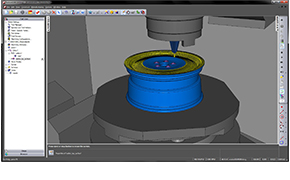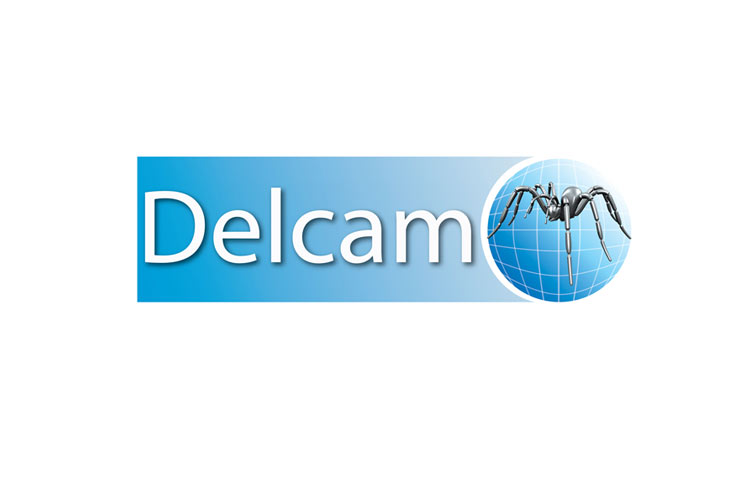Delcam has added more five-axis machining functionality in the 2016 R2 release of its FeatureCAM CAM programming software. Other enhancements include improved control and simulation capabilities for multi-axis machines, plus options to reduce both programming and machining times.
FeatureCAM was the world’s first feature-based programming software when it was launched in 1995. Constant development since then has ensured that the system has retained its leadership in programming speed and ease of use, while an increased range of strategies has been added to provide more efficient toolpaths that give greater productivity on a wider range of machinery, including turn/mill machines, five-axis mills and wire EDM equipment.
 FeatureCAM 2016 R2 introduces the ability to machine features aligned to the Z axis by using the C axis, rather than by moving in the X and Y axis. This option, which is commonly known as polar milling or polar indexing, can be used in situations where the machine cannot travel beyond a certain linear point. Instead, the C axis can be used to rotate the part within the machining envelope. It can be most helpful when machining parts with a circular profile, when machining times can be reduced and surface finish improved.
FeatureCAM 2016 R2 introduces the ability to machine features aligned to the Z axis by using the C axis, rather than by moving in the X and Y axis. This option, which is commonly known as polar milling or polar indexing, can be used in situations where the machine cannot travel beyond a certain linear point. Instead, the C axis can be used to rotate the part within the machining envelope. It can be most helpful when machining parts with a circular profile, when machining times can be reduced and surface finish improved.
Another addition to FeatureCAM’s flexible machine architecture provides support for the W-axis option in machine tools such as horizontal boring machines. This addition can be used to control and simulate moveable live spindles that can extend the travel limits of the Z axis to help avoid collisions.
The new release also includes an improvement to automatic tool selection – the inclusion of a check of the diameter of the tool shank. If the shank diameter is found to be larger than the diameter of the cutting portion of the tool, FeatureCAM will choose a tool of the appropriate length to avoid collisions of the shank with the part.
FeatureCAM 2016 R2 provides settings to position and index a turret within a part-handling feature when programming turn/mill machines. These settings can now be shown within the machine simulation, making it possible to pre-empt and fix potential collisions during part-handling operations.
Two options will allow more efficient machining. Firstly, relative plunge, which now supports two-axis spiral and zig-zag toolpaths, can be set to allow the tool to rapid to the plunge clearance location, rather than feeding to it. Secondly, curve sorting has been added to give better control of the order for machining multiple curves within a single feature. This can be set automatically using options including ascending or descending in X, Y or Z, or using the shortest path to achieve the quickest cycle time.
Machine design files can now be selected on a document level, making it easier to check visually which file is loaded. The same dialog also makes it quicker to edit the set-up location of the component and to change the machine-design file for the post-processor that is currently loaded.
Finally, FeatureCAM allows a post-processor document to be generated. This document helps users to understand the capabilities of the post-processor that is loaded currently.


